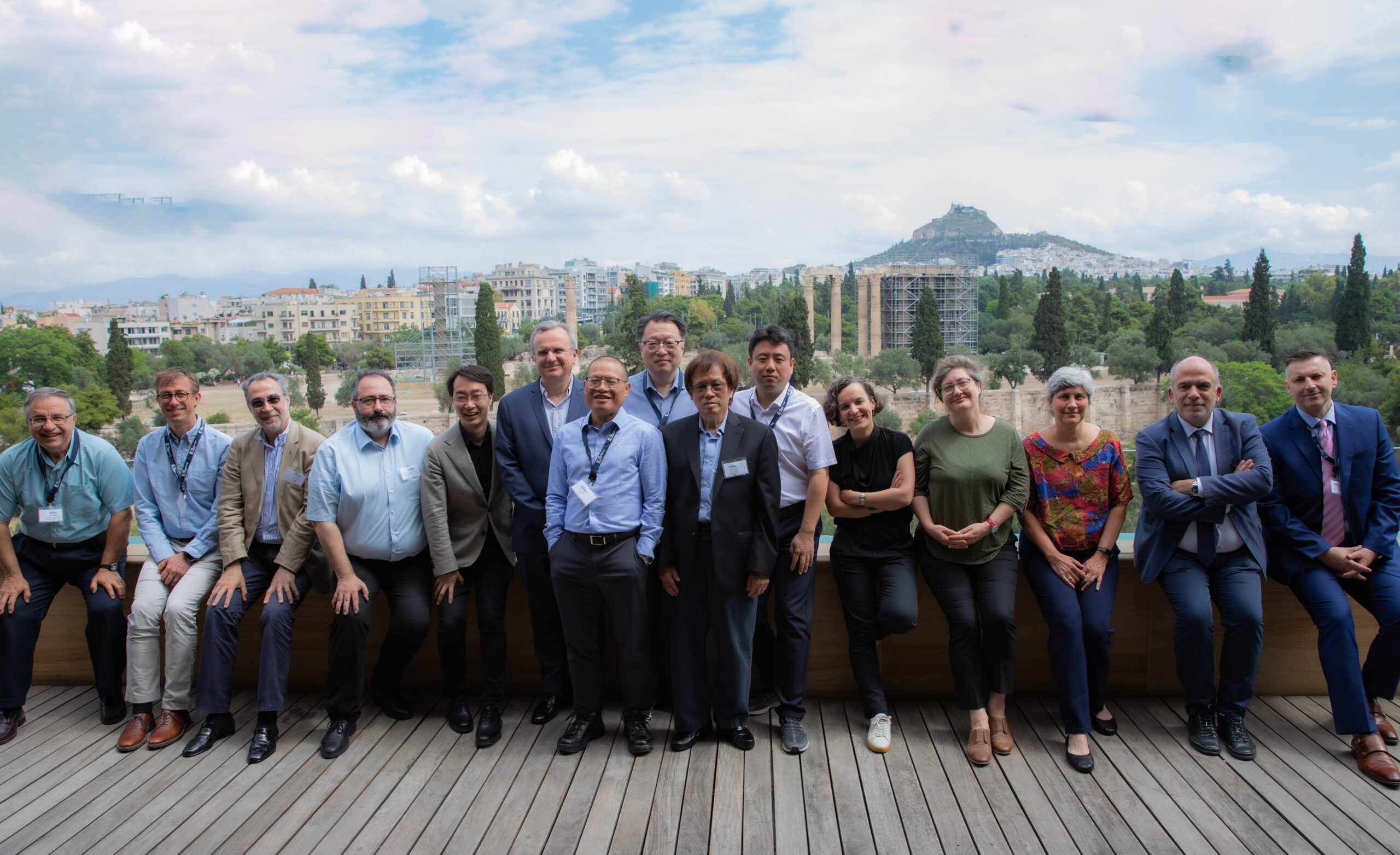IEEE Emerging Technology Reliability Roundtable 2023
IEEE Communications Society (ComSoc)
Technical Committee on Communications Quality & Reliability (CQR)
Emerging Technology Reliability Roundtable 2023 (ETR-RT23)
June 13-14 (Tuesday-Wednesday), 2023
Athens, Greece
Royal Olympic Hotel
Scope of the Roundtable
- Discuss and identify the RAS (Reliability, Availability and Serviceability*) challenges, requirements and methodologies in the emerging technology areas like the Cloud Computing, Wireless/Mobility (with focus on 5G technologies), Artificial Intelligence (AI), NFV (Network Functions Virtualization), SDN
(Software Defined Networking), or similar large-scale distributed and virtualization systems. - Discuss the RAS requirements and technologies for mission-critical industries (e.g., airborne systems, railway communication systems, the banking and financial communication systems, etc.), with the goal to promote the interindustry
sharing of related ideas and experiences. - Identify potential directions for resolving identified issues and propose possible solution
*Serviceability: Focus on the technology, solutions and platforms which can improve Operation and Maintenance (O&M) ability, including Deployment, Monitoring, Upgrade/Patching, Adjustment, Troubleshooting, Fault Recovery, Data Configuration, etc. The target of Serviceability is to make the O&M work more Easily, Remotely, Automatically and Efficiently in order to achieve Low OPEX and High Customer Satisfaction.
Participants at the ETR-RT 2023 in Athens, Greece
IEEE Emerging Technology Reliability Roundtable 2023: Summary of Findings
[#00] Spilios Makris – Introduction
[#01] David Lu – Reliability Challenges for Future Communication Industry
[#02] Dimitris Varoutas – Regulatory challenges for the network reliability and resilence
[#03] Zheng HU – Safe and Reliable Complex Intelligent Systems with Human-in-the-loop
[#04] Magnus Tränk – Reliable access to Mission Critical services
[#06] IEEE Committee for Quality and Reliability – Responsible AI Session Kickoff
[#07] Lynette Webb – Overview of the AI policy landscape
[#08] Kathy Meier-Hellstern and Lucas Dixon – Responsible AI for Generative Models
[#09] Viktor Dörfler – AI Ethics The Final Next Frontier
[#10] Henriette Cramer – Translation Gaps in AI Impact/ Reliability
[#11] Ding Zhao – Trustworthy AI – Recent works at CMU Safe AI Lab
[#12] Aman Singh and Peter Thermos – Artificial Intelligence – tool for innovation and destruction
[#13] Luis M. Correia – Challenges in 5G for the Deployment of Security and Emergency Networks
[#14] Peter Thermos – Security Challenges in Private 5G Networks
[#16] Luis M. Correia – Hosting ETR-RT in Lisbon in 2024
[#17] References – AI Governance Landscape
[#18] References – Responsible AI for Generative Models
[#19] References – AI Interesting Articles

David H. Lu, Vice President (Retired), Network Systems, AT&T, USA
Since joining AT&T Bell Labs in 1987, David has served in various leadership positions at AT&T. He has led numerous automation initiatives in AT&T that resulted in multi-billion dollar savings over the past 20 years. David holds 57 patents with multiple AT&T IP Awards and frequently appears as a guest speaker at technical and leadership seminars and conferences throughout the world. He has received numerous industry awards including the 2015 Chairman’s Award from IEEE Communication Society Communications Quality and Reliability Technical Committee and 2017 CIE AAEOY (Asian America Engineer of Year) Award. David has led global organizations of more than 5,000 people at AT&T. His last role at AT&T was responsible for the architecture, development, and engineering of AT&T’s next generation SDN (Software Defined Network) automation platform and open source (Linux Foundation ONAP) initiatives enabling AT&T’s network virtualization and 5G/Fiber networks spanning across access and core networks and from physical layer to service layers. He led the definition and implementation of the AI driven network systems transformation including PaaS & SaaS, policy control & orchestration, hyper-automation with AI/ML driven predictive and adaptive data & workflow analytics.
David is a well-respected leader in large-scale, real-time software architecture and development, network performance and traffic management, workflow and policy-controlled automation, large databases and big data implementation/mining/analytics, machine learning, artificial intelligence, software reliability and quality, and network operations process engineering. Since retiring from AT&T, David focused his time on family, Christian faith work, and professional and community work, heavily involved in disruptive technology & innovation talks, career development mentoring and talent training, and board strategic advisory and consulting services.
Talk Title: The Reliability Challenge for Emerging Communication Technology and Its End-to-End Serviceability
Abstract:The world of communication technology has rapidly evolved from coaxial to fiber, from wireline to wireless, from low speed to ultrafast highspeed broadband, from 4G wireless to 5G and other breakthrough technologies such as LEO (Low Earth Orbit) satellite communication networks, from hardware centric architecture to software centric architecture. These changes not only brought transformational breakthrough to the science and technology fields but also enabled use cases that would introduce unimaginable economic and social impact to the world in the next two decades.
This talk will provide an industry landscape while focus on the latest technology development in the communication field as well as specific use cases that might be enabled by 5G, 5G+, 6G terrestrial wireless networks, LEO satellite communication networks, multi-gig consumer and business broadband services, ultrafast and multi-Terabits optical networks, and virtualized software centric networks. The talk will highlight the industry operational challenges in implementing such transformation, especially the AI driven network & operations, and use cases for these technology advancements in addressing the end-to-end (ETE) service reliability, cyber security, network cloud, and virtual reliability.
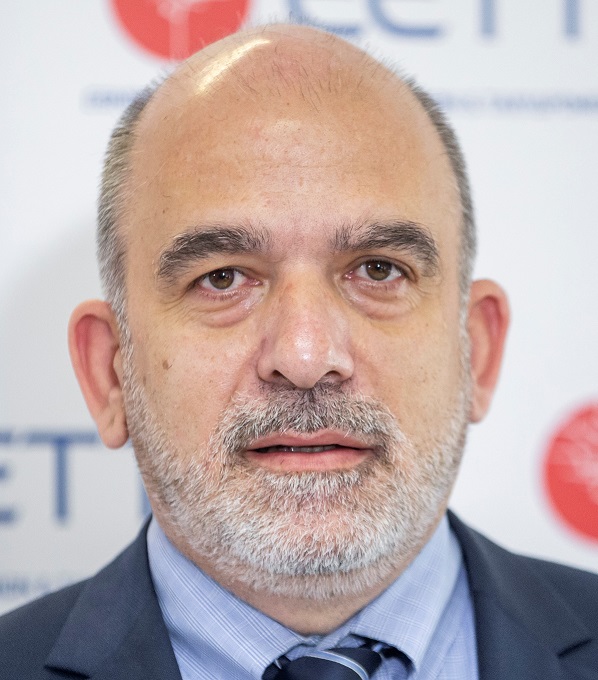
Dimitris Varoutas, Vice President for Electronic Communications of the Greek NRA, the Hellenic Telecommunications & Post Commission (EETT)
Dimitris Varoutas, (IEEE SM’11, M’98) has been appointed Vice President for Electronic Communications of the Greek NRA, the Hellenic Telecommunications & Post Commission (EETT) since February 2020. Under this capacity he is a member of BEREC the Board of European Regulators for Electronic Communications. From 2007 to 2016 he was Member of Board of the Hellenic Authority for Communication Security and Privacy. He is an Associate Professor in the Faculty of Informatics and Telecommunications, School of Sciences at the National and Kapodistrian University of Athens (www.uoa.gr) since 2005. Since early 90s he has been participating in numerous European R&D projects in the areas of telecommunications and technoeconomics. As a UoA faculty member he also participated in or managed national projects and initiatives related to technoeconomic evaluation of broadband strategies, telecommunications demand forecasting, price modelling etc. His research interests span design of optical and wireless communications systems to technoeconomic evaluation of network architectures and services. He has published more than 120 publications in refereed journals and conferences in telecommunications, optoelectronics and technoeconomics, including leading IEEE Journals and conferences. He is a Senior Member of IEEE and participates in several societies including Communications, Photonics (former LEOS), Education and Engineering Management. He also serves as Editorial Board member and reviewer in several, including IEEE, journals and conferences. He holds a Physics degree, M.Sc., and Ph.D. diplomas in telecommunications and technoeconomics from the National and Kapodistrian University of Athens.
Talk Title: Regulatory Challenges for the Reliability and the Resilience of Telecommunications Networks
Abstract: Regulating telecommunications networks presents regulators with multiple challenges in today’s landscape. These challenges encompass various areas, including keeping pace with technological advancements, striking a balance between competing objectives, ensuring consistency and predictability, coordinating with other regulators, adequately allocating resources for regulatory functions, and addressing global challenges. With the telecommunications industry becoming increasingly globalized, regulators must navigate complex international relationships and tackle global issues like cybersecurity and data protection.
One significant set of regulatory challenges pertains to ensuring the reliability and resilience of networks. These challenges involve efficiently allocating and managing the radio frequency spectrum, which is crucial for network reliability, particularly in the realm of wireless communications. They also include promoting seamless interconnection and interoperability among different network providers to prevent network fragmentation. Additionally, regulators must monitor compliance with resilience regulations and take appropriate action against entities that do not comply.
The regulatory challenges related to reliability and resilience require the attention of regulators and policy makers. Given the rapid pace of technological advancements and the ongoing public debate surrounding these issues, engaging in open discussions, and considering diverse perspectives will contribute to an informed policy decision-making process.

Peter Thermos, President & CTO, Palindrome Technologies, USA
Peter has over 25 plus years of experience in Cyber Security providing consulting to leading commercial organizations and conducting security research for US government organizations (i.e., DARPA, DHS, NIST). As founder of Palindrome Technologies, he is working as a subject matter expert with customers in several industry sectors, including Government, Telecommunication, Financial and Healthcare, in securing Enterprise Networks, Carrier-grade Networks and helping organizations secure emerging technologies including 5G, MEC, IoT, and V2X. Peter is the primary author of the book “Securing VoIP Networks” by Addison-Wesley and has been a speaker at various conferences (i.e., IEEE, ICIW, VoN, SANS, Blackhat, MIS InfoSec, ISSE) and has published research papers in academic and industry journals (i.e., IEEE, ACM, ISSA, IEC) and articles in trade magazines such as Information Security, ZDNET, Forbes, TechTarget and Wired. Furthermore, he has been the Co-Chair for IEEE CQR Workshop, IEEE World Forum IoT and committee member of ICCWS. Furthermore, Peter is a contributor to the FCC CSRIC VII Report on Risk to 5G from Legacy Vulnerabilities and Best Practices for Mitigation (June 10, 2020). Peter holds a Master’s degree in Computer Science from Columbia University, NY, is a senior member of IEEE and ISSA and a member of IETF and ACM.
Talk Title 1: Artificial Intelligence – A Tool for Innovation and Destruction
Abstract: AI offers unimaginable potential to enhance and/or revolutionize several fields including healthcare, finance, manufacturing, scientific research, among several others. Simultaneously, adversaries can leverage AI models to launch sophisticated attacks, which can render existing security solutions useless. This talk will focus on adversarial methods of exploiting AI models.
Talk Title 2: Security Challenges in Private 5G networks
Abstract: The fifth generation (5G) telecommunication system aims to deliver enhanced mobile broadband, massive machine type communications, and ultra-reliable and low latency communications to consumers and enterprise organizations. This talk explores the 5G architecture and supporting components, along with examining applicable security threats and attack vectors that can be leveraged by adversaries.
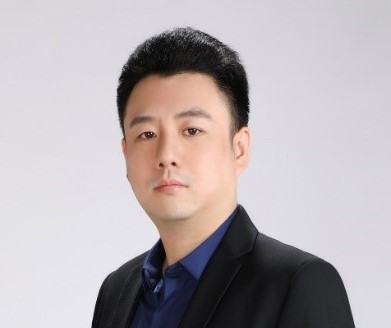
Zheng Hu, Director of the Reliability Technology Lab of Huawei Technologies Co., Ltd., China
Dr. Hu is the director of the Reliability Technology Lab of Huawei Technologies Co., Ltd. The Reliability Technology Lab is the competence center and technology research center of Huawei’s product reliability, availability, and safety. He is responsible for the research of key reliability technologies and building a reliability engineering capability system. At present, the research direction includes software reliability, reliability theory and complex intelligent system reliability. Dr. Hu received a doctorate in computer science from the University of Lyon, France. Before joining Huawei, he was a senior researcher at Orange-labs, France Telecom, where he worked on smart grids, smart homes, and smart buildings.
Talk Title: Safe and Reliable Complex Intelligent Systems with Humans In-the-Loop
Abstract: The development of complex intelligent systems with humans in-the-loop has brought about new challenges in ensuring their reliability. These systems are designed to interact with humans and make decisions based on complex algorithms and data analysis. However, the involvement of humans in the decision-making process introduces a level of unpredictability and uncertainty that can compromise the reliability of the system. This speech will explore the challenges of ensuring the reliability of complex intelligent systems with humans in-the-loop. We will examine the importance of designing systems that can adapt to changing circumstances and incorporate feedback from human operators to improve their performance. Ultimately, the goal is to create intelligent systems that are not only reliable but also safe and trustworthy for human use.

Kathy Meier-Hellstern, Principal Engineer and Director, Google Research, USA
Meier-Hellstern is a Principal Engineer and Director in Google Research, serving as the Responsible AI Tech Lead for Google’s large language and multimodal models. Her research mission is to create scalable tools, data and processes for evaluating and improving Responsible AI in ML Models and Products. Kathy was previously a Principal Site Reliability Engineer at Google, focused on improving the end-to-end client experience in YouTube and Ads.
Before joining Google, Kathy was Assistant Vice President of Optimization, Reliability & Customer Analytics (ORCA) in AT&T Labs, responsible for delivering enhanced analytic tools and software for AT&T’s Next Generation networks. Kathy is an AT&T Fellow, and holds a Ph.D. and Master’s degree in Operations Research from University of Delaware.
Talk Title: Responsible AI for Large Models
Abstract: This talk gives an overview of Responsible AI for large models. We explore the connection between Responsible AI and reliability.

Henriette Cramer, Head of Algorithmic Impact and Director of Trust & Safety, Spotify, USA
Henriette Cramer is Head of Algorithmic Impact, and Director in Spotify’s Trust & Safety team. Her work is focused on the impact of data and machine learning decisions and reducing potential algorithmic risks. This includes translating abstract calls to action into concrete structure and tooling, as well as data-informed product direction. Prior, she led data for Spotify’s voice platform, Yahoo projects on conversational interactions, recommendation and ad quality, and human-robot interaction and location-based data research at the Swedish Institute of Computer Science. Her work has resulted in product impact, patent filings, awards, and 60+ publications. She holds a PhD from the University of Amsterdam on people’s interactions with systems that learn. More info can be found at henriettecramer.com
Talk Title: AI Safety, Impact and Reliability Translation Gaps
Abstract: Negative side effects of Machine Learning have now gained proper attention. Using existing, historical data can perpetuate stereotypes, machine models and recommendations can amplify existing inequalities. However, pragmatic challenges stand in the way of practitioners that have committed to addressing these issues within their domains. There are no clear, off-the-shelf industry-standard processes that can be readily applied on what negative impacts to assess, or how to address them in practice. This talk will address personal reflections on gaps between larger debates vs challenges for practitioners, research, and industry, as well as potential directions for translation activities between different communities in algorithmic alignment, reliability, and safety spaces.

Lynette Webb, Product Manager, Responsible AI, Google Research, UK
Lynette Webb has worked for Google since 2007, including 6 years focused on AI policy issues and most recently a stint as a product manager in the responsible AI team. Previously, Lynette spent 6 years working within Aegis Media, advising agency teams on emerging digital media and communications trends. Prior roles included business development for News Corp’s European arm and 4 years consulting for McKinsey. She has an MBA from New York University and a B.Sc. (Hons) majoring in Mathematics from the University of Melbourne.
Talk Title: An Overview of the AI Policy Landscape
Abstract: As AI technology advances, governments are grappling with how to best respond to the opportunities and challenges it presents. This talk will provide an overview of the current AI policy landscape, highlighting key players and significant topics of discussion. Additionally, it will delve into Europe’s forthcoming AI Act, which is set to become the world’s first comprehensive regulation for high-risk AI systems.
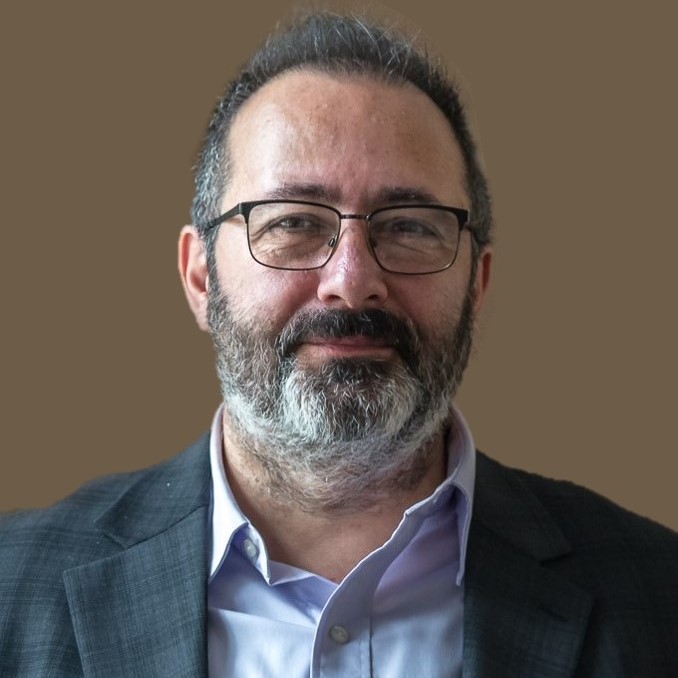
Viktor Dörfler, Senior Lecturer, University of Strathclyde Business School, Glasgow, UK
Dr Dörfler is a scholar, consultant, teacher, and speaker; his book What Every CEO Should Know About AI has been published by the Cambridge University Press in 2022. As a practitioner, he spearheaded the development of AI software, a knowledge-based expert system shell, compared various AI solutions, and explored the validity of AI. Dörfler’s scholarly research focuses on talent, creativity, intuition, and the grandmaster-apprentice relationship. He conducted in-depth open-ended interviews with 17 Nobel Laureates and two Eckert-Mauchly Award winners, to understand the thinking of scientists at the highest level of mastery. In his consultancy work, Dörfler advises organizations on AI implementations to support complex decisions through modelling expert knowledge and on fostering grandmaster-apprentice relationships to improve organizational learning. Viktor has been appointed member of the British Standard Institution’s Artificial Intelligence Committee (BSI ART/001).
Talk Title: AI Ethics: The Next Frontier
Abstract: With the ever-increasing speed of AI development and recent widespread use of AI, particularly large language models (LLM), the questions of trustworthiness, reliability, safety, and other moral issues become exceptionally pressing. We have to admit that after more than 2.5 thousand years of studying ethics, as a branch of philosophy, we are still at an early stage of understanding the field, while AI development needs answers now. While the answers of AI Ethics will need to be arrived at individually, this talk will help ask better questions.
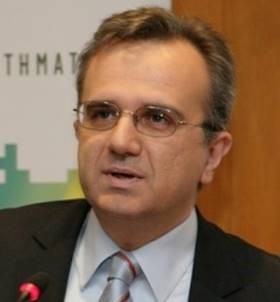
Panagiotis Demestichas, Professor, University of Piraeus, Greece
Prof. Demestichas focuses on the development of systems for WINGS ICT Solutions (www.wings-ict-solutions.eu) and its spin-out, ditto (https://ditto-gr.eu/) and Incelligent (www.incelligent.net). WINGS focuses on advanced solutions, leveraging on IoT / 5G / AI / AR, for the environment (air quality), for utilities and infrastructures (water, energy, gas, transportation, construction), for production and manufacturing (aquaculture, agriculture and food safety, logistics and industrial IoT), service sectors (health, security). Incelligent focuses on products for telecommunication infrastructures, banking, and for the public sector. Panagiotis’ research interests include 6G, cloud to edge continuum, IoT solutions, big data and artificial intelligence, orchestration / diagnostics / intent-oriented mechanisms. He holds a Diploma and a Ph.D. degree on Electrical Engineering from the National Technical University of Athens (NTUA). He holds patents, has published numerous articles and research papers, is a member of the Association for Computing Machinery (ACM) and a Senior Member of IEEE
Talk Title: Enhancing the Resilience and Sustainability of Vertical Applications in 6G
Abstract: 6G is being developed with the goal of catalyzing the trend started in 5G, that of having wireless networks serving diverse vertical sector applications; in addition, consumer applications will be put in the center of attention of 6G. 6G aims at magnifying the use of a set of advanced application features, namely, massive twinning, robots and XR. Application delivery should be done having sustainability (as well as trust and digital inclusion) in the center of attention. A related, complementary, and essential target is to work towards a resilience, business continuity and “disaster” recovery plan, which will ensure minimal downtime and uninterrupted operation of vertical applications, in the event of disruptions (including the occurrence of catastrophic events).
All these require the synergy of advanced service management components and of infrastructure enablers. In this direction, and with respect to resilience, the talk will focus on the following areas – (1) Management intelligence for the (re)allocation of the diverse functionality (application components, user interfaces, AI components as part of the application, network functions, etc.) to address. (2) Fault-Tolerant Architectures: Designing vertical applications in 6G with fault-tolerant architectures to ensure high reliability and availability even in the presence of component failures or network disruptions. (3) Predictive Analytics: Leveraging predictive analytics and machine learning algorithms to analyze historical data and predict potential failures or performance bottlenecks, enabling proactive measures to enhance reliability and availability.
Moreover, with respect to sustainability targets and energy-efficiency, key points will be the following – (1) Utilizing virtualization and containerization technologies, such as Docker and Kubernetes, to consolidate applications and infrastructure, leading to better resource utilization, reduced costs, reduced hardware footprint, and lower energy consumption. (2) Renewable Energy Integration: Exploring opportunities to integrate renewable energy sources, such as solar or wind power, into the 6G infrastructure supporting vertical applications to reduce reliance on traditional energy grids and decrease carbon footprint. (3) Environmental Monitoring: Integrating environmental monitoring sensors and systems into vertical applications to collect data on energy consumption, temperature, air quality, and other relevant factors. Using this data to optimize energy usage and make informed decisions for sustainability.
References to current and ongoing R&D work will be included.
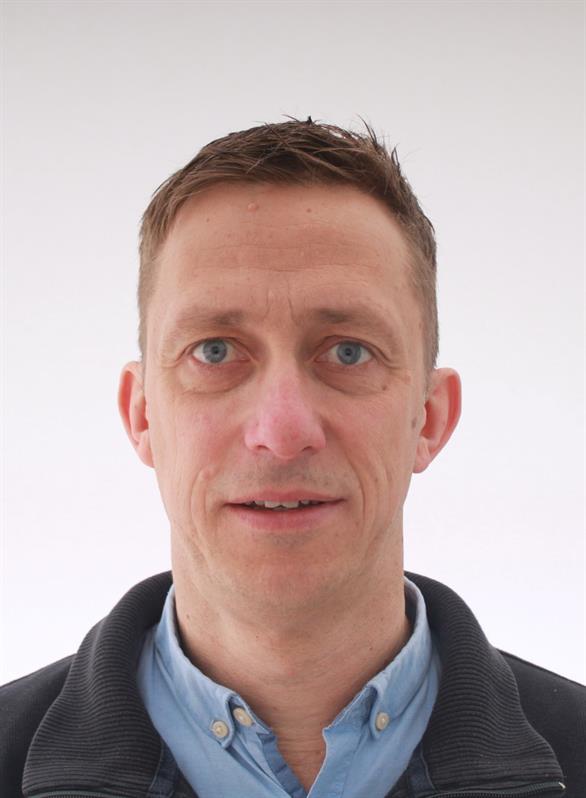
Magnus Tränk, Technical Product Manager, Ericsson, Sweden
Magnus Tränk holds a position as Technical Product Manager in the Mission Critical Networks organization within Ericsson. Magnus has more than 25 years in the telecom industry in a wide range of areas covering VoLTE/IMS networks, Radio networks, Mission Critical Applications as well as BSS/OSS solutions. He also has had the role as Ericsson’s main delegate in 3GPP standardization of Mission Critical Applications for 4 years. Currently the focus areas include how verticals (e.g., Public Safety, Railways, Utilities and Digital Airspace) can utilize 3GPP networks in an optimal way for availability, resilience, and performance. He has a Master of Science degree in Mechanical Engineering from Linköping’s University, Sweden.
Talk Title: Reliable Access to Mission Critical Services
Abstract: For Mission Critical users, the availability of communication services is a key factor for any mission success. An unreliable access network could lead to disasters for Mission Critical users. Challenges in providing reliable Mission Critical services comprise not only a reliable access network. In addition to a reliable access network, end-to-end Mission Critical services require also cross-technology resilience solutions, network status monitoring and tools that facilitate the end users’ decisions on how to use the service. The speech will elaborate on different access technologies, how different resilience solutions improve availability and how to provide a deterministic user experience when there are disturbances in the communication network.
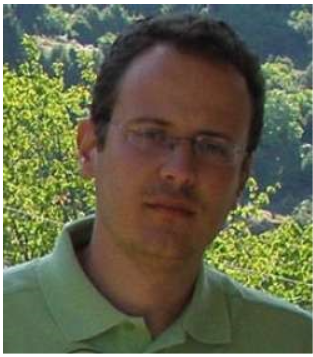
Nektarios Koutsokeras, Senior Access Network Engineer, Cosmote, Greece
Dr. Nektarios Koutsokeras is currently leading the introduction of intelligent big data systems into Cosmote and Deutsche Telekom AG. His main interest involves the workflow transformation in Radio Access Networks (RAN) with emphasis on the introduction of digital pipelines, AI-ML techniques assisting the automated subscriber-centric problem and anomaly detection, root cause analysis, and QoS monitoring. Recently, he is responsible for the cross domain (RAN and Core) data sources integration for a more complete understanding of the E2E customer experience while ensuring the highest possible industry standards for user data privacy and security. He has 20 years of experience in the telecommunication industry with concentration in mobile network communication protocols and 3GPP standards. He is very familiar with all the underlying procedures involved into the daily RAN design and optimization.
Nektarios received his Ph.D. in Mobile Communications from the National Technical University of Athens (NTUA), a MS in Technoeconomic Systems, and a Diploma (5-yr program including a Thesis) in Electrical and Computer Engineering from the NTAU. He has several publications into peer review IEEE conferences and high impact factor international Journals. During his Ph.D. studies he was involved with many European Union (EU) funded research programs cooperating with leading industry players and contributing to the standardization bodies.
Talk Title: : A Big Data Based Approach for Subscriber Centric Mobile Network Monitoring and Optimization – Overcoming the Challenges Towards Higher Automation, Efficiency, and GDPR Compliancy
Abstract: Optimizing the multi-service Customer Experience (CX) in today’s complex mobile networks becomes a huge challenge for the Mobile Operators. Usually, big data-based systems are introduced, and intelligent AI-assisted intelligent functions are developed to provide deep CX monitoring and automated network issues discovery. Those big data systems are collecting per subscriber-related information across various Mobile Network Interfaces (RAN, Core) and they are subjected to further intelligent processing including the real time user geolocation, automated problem zone detection/clustering, device anomaly detection, etc. Many of the existing workflows are transformed with the development of digital pipelines leading contributing into the target of a “digital Telco”. In this complex environment security/data privacy is becoming extremely crucial and advanced anonymization functions are developed to ensure full GDPR compatibility.
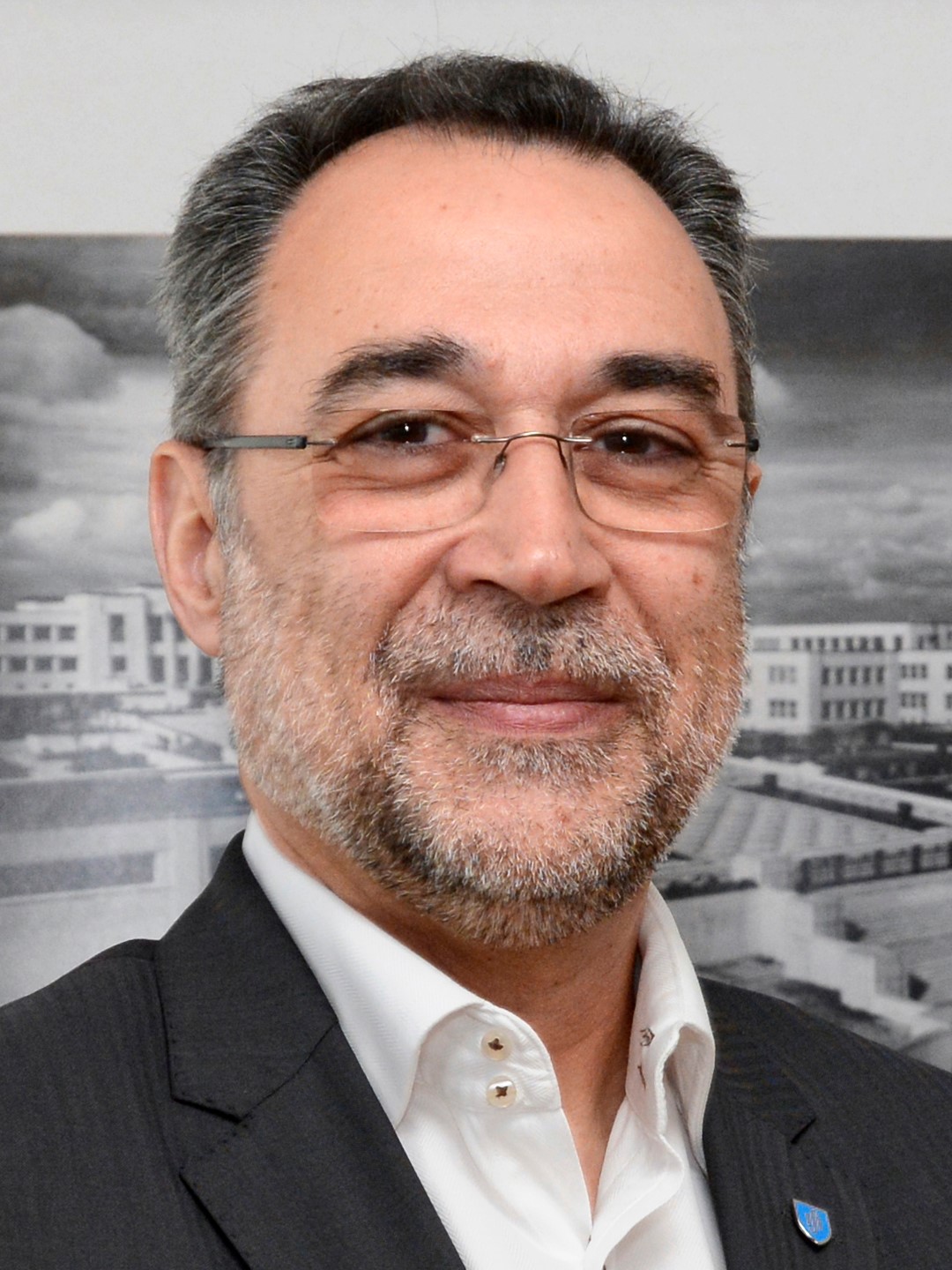
Luis M. Correia, Professor, University of Lisbon, Portugal
Luis M. Correia was born in Portugal, in 1958. He received the Ph.D. in Electrical and Computer Engineering from IST (Univ. Lisbon) in 1991, where he is currently a Professor in Telecommunications, with his work focused on Wireless & Mobile Communications, with the research activities developed in the INESC-ID institute. He has acted as a consultant for the Portuguese telecommunications operators and regulator, besides other public and private entities, and has been in the Board of Directors of a telecommunications company. He has participated in 33 projects within European frameworks, having coordinated 6 and taken leadership responsibilities at various levels in many others, besides national ones. He has lectured 76 advanced training courses for industry and academia at the national and international levels. He has supervised over 230 M.Sc./Ph.D. students, having edited 6 books, contribute to European strategic documents, and authored over 550 papers in international and national journals and conferences, for which served also as a reviewer, editor and board member. Internationally, he was part of 40 Ph.D. juries, and 80 research projects and institutions evaluation committees for funding agencies in 12 countries, and the European Commission and COST. He has been the Chairman of Conference, of the Technical Programme Committee and of the Steering Committee of 25 major conferences, besides other several duties. He was a National Delegate to the COST Domain Committee on ICT. He has launched and served as Chairman of the IEEE Communications Society Portugal Chapter, besides being involved in several other duties in this society at the global level. He is an Honorary Professor of the Gdańsk University of Technology (Poland) and a recipient of the 2021 EurAAP Propagation Award “for leadership in the field of propagation for wireless and mobile communications”.
Talk Title 1: Challenges in 5G for the Deployment of Secure and Emergency Networks
Abstract: This talk addresses scenarios and challenges for the deployment of 5G regarding security and emergency networks (including military ones), namely aspects of a proper and efficient service differentiation and implementation, which is still to be fully understood and considered. Radio and network aspects are addressed regarding adaptability and flexibility, looking at radio links quality and capacity, virtualisation/slicing, and cloud/edge networking, regarding the quite different characteristics that services present.
Talk Title 2: Hosting ETR-RT in Lisbon in 2024
Abstract: ETR-RT is foreseen to take place in Lisbon, Portugal, in June 2024. This presentation will address travel aspects, as well as options hosting the meeting, and the corresponding logistics. The team in charge of hosting the meeting will be presented as well.
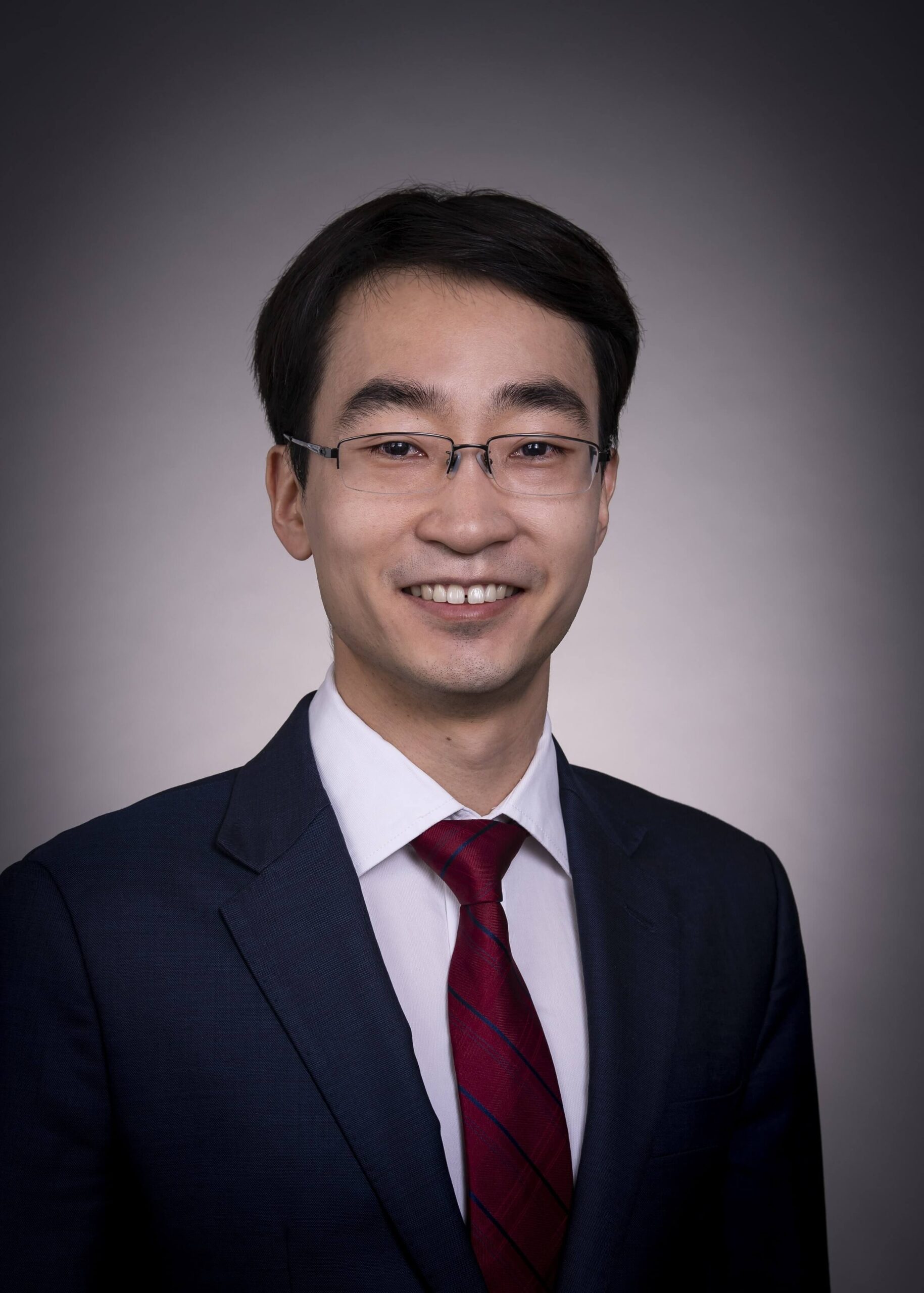
Ding Zhao, Assistant Professor, Carnegie Mellon University (CMU), USA
Ding Zhao is currently an Assistant Professor in the Department of Mechanical Engineering at Carnegie Mellon University (CMU), with affiliations at the Computer Science Department, Robotics Institute, and CyLab on Security and Privacy. Directing the CMU Safe AI Lab, his research focuses on the theoretical and practical aspects of trustworthy intelligent autonomy with applications such as self-driving, assistant robots, healthcare diagnosis, and cybersecurity. He is the recipient of the National Science Foundation CAREER Award, CMU George Tallman Ladd Research Award, MIT Technology Review 35 under 35 Award in China, Ford University Collaboration Award, Carnegie-Bosch Research Award, Struminger Teaching Award, and many industrial fellowship awards from Google, Toyota, and Bosch. He worked with leading industrial partners, including Google, Apple, Amazon, Ford, Uber, IBM, Adobe, Bosch, Toyota, and Rolls-Royce.
Talk Title: On the Safety and Generalizability of Trustworthy Intelligent Autonomy
Abstract: As Artificial Intelligence (AI) has started to shift towards deployment in the physical world, its rapid development is coupled with as much risk as benefits. In this talk, I will introduce two key aspects of our work to develop trustworthy autonomy: generalizability and safety. Topics include a) safe reinforcement learning with violation constraints and its robustness analysis, b) safety-critical meta verse generation with data-based, adversarial, and knowledge-based approaches, and c) generalizable reinforcement learning with hierarchical structures and adaptive policies for non-stationary tasks. Applications focus on self-driving and household assistant robots.

Technical Program Chair: Spilios Makris, Ph.D., Director, Palindrome Technologies, USA
Spilios Makris is currently the Director of Network Resilience and Business Continuity Management (BCM) in Palindrome Technologies. Spilios has extensive experience in BCM and network resilience serving as Director and Senior Consultant at Telcordia Technologies (formerly Bellcore) for over 28 years, conducting studies and developing methodologies along with industry Best Practices for over 50 Tier 1&2 telecom companies, telecom vendors, and Telecom Regulatory Authorities (TRAs) worldwide. Spilios has served as Chair, Vice-Chair, Lead Contributor of the Standards T1A1.2 WG on “Network Survivability Performance” (was renamed PRQC Reliability Task Force) for 20 years. He successfully managed the development and regular update of Telcordia Generic Reliability Requirements documents establishing them as the “de facto” industry standards (e.g., SR-332 on Reliability Prediction Procedure for Electronic Equipment). Spilios recently served as the Chair of the IEEE Study Group for Security, Reliability, and Performance for Software Defined and Virtualized Ecosystems (e.g., SDN, NFV, etc.). (http://grouper.ieee.org/groups/srpsdv/meeting_information.html).
Spilios received his PhD in Industrial Engineering & Operations Research from the University of Massachusetts at Amherst, Mass., MS in Engineering Management from Northeastern University, Boston, Mass., and Diploma (equiv. to MS) in Electrical & Mechanical Engineering from the National Technical University of Athens, Greece. He is a Certified Business Continuity Professional (CBCP) by the Disaster Recovery Institute International (DRII) and a Senior Member of IEEE.
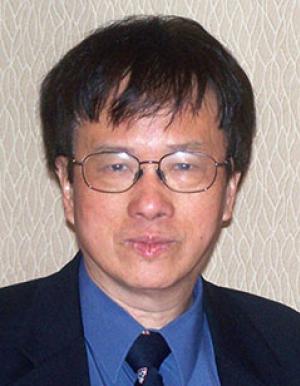
General Chair: Chi-Ming Chen, Ph.D., AT&T Labs (Retired), USA
Chi-Ming Chen joined AT&T in 1995. He was with the AT&T Labs architecture organization which designs the Enhanced Control Orchestration Management Platform (ECOMP) and Open Network Automation Platform (ONAP). Prior to joining AT&T, Chi-Ming was with the Quality Assurance Center of Bell Communications Research (Bellcore) from 1985 to 1995 and was a faculty member at Tsing Hua University, Hsinchu, Taiwan from 1975 to 1979.
He received his Ph.D. in Computer and Information Science from the University of Pennsylvania in 1985; M.S. in Computer Science from the Pennsylvania State University in 1981; M.S. and B.S. in Physics from Tsing Hua University, Taiwan, in 1973 and 1971 respectively.
Chi-Ming Chen is a Life Senior Member of IEEE and Senior Member of the ACM. He is an Advisory Board Member of IEEE Communications Society (ComSoc) Technical Committee on Communications Quality & Reliability (CQR). He was a member of the IEEE GLOBECOM & ICC Management & Strategy (GIMS) Standing Committee and served as the GLOBECOM and ICC Site Selection Chair from 2012 to 2017. He has chaired the Industry Forums of several GLOBECOMs and ICCs and is serving as the GIMS Advisor for ICC 2019, Shanghai, China.
From 2015 to 2017, Chi-Ming was a Steering Committee member of the IEEE SDN Initiative and IEEE Big Data Initiative. Currently, he is co-chairing the 5G Roadmap Working Group of IEEE 5G Initiative. He has been a key Organizing Committee member of CyberC conference since it’s started in 2009. In addition, he also organizes the annual IEEE Emerging Technology Reliability Roundtable (ETR-RT) since 2014.
Resource Links:
Due to COVID-19, this event was canceled for the period 2020-2022
ETR-RT 2019 presentations and summary of findings
ETR-RT 2018 presentations and summary of findings
ETR-RT 2017 presentations and summary of findings
ETR-RT 2016 presentations
ETR-RT 2015 presentations
ETR-RT 2014 presentations
IEEE SDN Initiative
ETSI NFV
ETSI NFV Portal TB (Technical Body)


